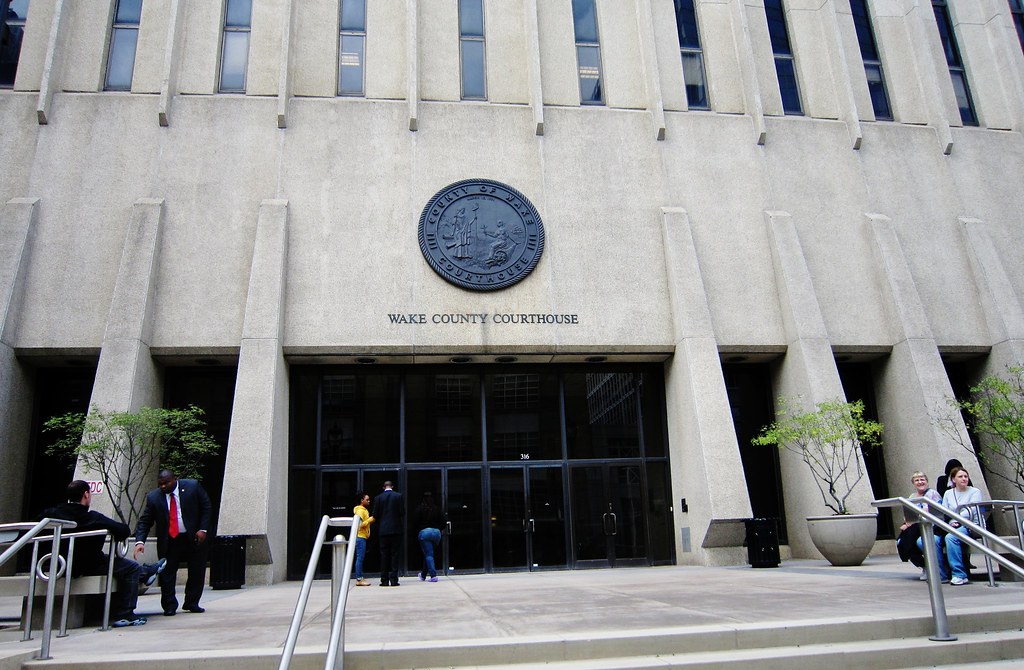Last week, two UNC Law students, Morgan Schriner and Jack Salt, argued for public release of the body camera footage of a Raleigh Police Department “Quick Knock” warrant execution on the home of the Abbouds, innocent civilians who were victims of mistaken identity. Morgan and Jack were supervised by Elizabeth Simpson, who is serving as Interim Director of the UNC Law School Civil Legal Assistance Clinic this school year. The UNC Law team represented the Abboud family along with two media outlets with interest in the body camera footage, The Assembly and INDY Week.
Quick Knock warrant executions are illegal. Under the Fourth Amendment and under State law, police officers must knock and announce their presence before busting down the door of a private home. But Raleigh Police regularly uses Quick Knock warrant executions to evade these legal requirements. In this case, they had the wrong guy and the wrong home. While over ten media outlets showed up to the hearing, demonstrating the profound public interest in viewing this footage, a Special Superior Court judge appointed by the North Carolina General Assembly, Matthew T. Houston, refused to release it, citing the lack of “compelling” public interest.
The INDY Week reported:
Taxpayers have paid millions of dollars to equip police with body cameras, UNC law student Jack Salt told Special Superior Court Judge Matthew T. Houston during Tuesday’s hearing, which was held remotely. Withholding the footage “defeats the purpose,” he said.
Under state law, body-cam footage is not a public record. But judges can release footage if they deem it necessary to “advance a compelling public interest.”
While numerous media outlets—including The Assembly, INDY, The News & Observer, WRAL, Rolling Stone, and Radley Balko’s The Watch—have reported on the RPD’s controversial use of “quick-knock” warrants, the RPD argued in court filings that the Abbouds’ request did not meet the “public interest” standard.
At Tuesday’s hearing, RPD attorney Sherita Walton told Houston—who was appointed by Senate leader Phil Berger last year—that the Abboud raid was “valid on its face” and insisted that none of the officers did anything wrong. Walton said releasing the footage would be “dangerous.”
But in an email to Houston after the hearing, UNC Civil Legal Assistance Clinic director Elizabeth Simpson pointed out that the judge only denied the request “at this time” because the Irving family had yet to see the footage. In addition, Simpson said that multiple media outlets had not joined the Irving family in seeking the footage, as The Assembly and INDY had done in this case.
Simpson also disputed the RPD’s claim that there was no misconduct: “The officers did engage in unlawful conduct by entering the home simultaneously with their announcement. North Carolina law requires ‘Knock and Announce’ for warrant execution.”
Simpson also implored Houston to reject the RPD’s suggestion that footage should only be released following incidents involving fatalities or serious injuries, citing a unanimous NC Supreme Court decision from December 2022: “History teaches us that opaque decision-making destroys trust; recent history involving police body cameras emphasizes this risk,” wrote Justice Robin Hudson, a Democrat who has since retired.
